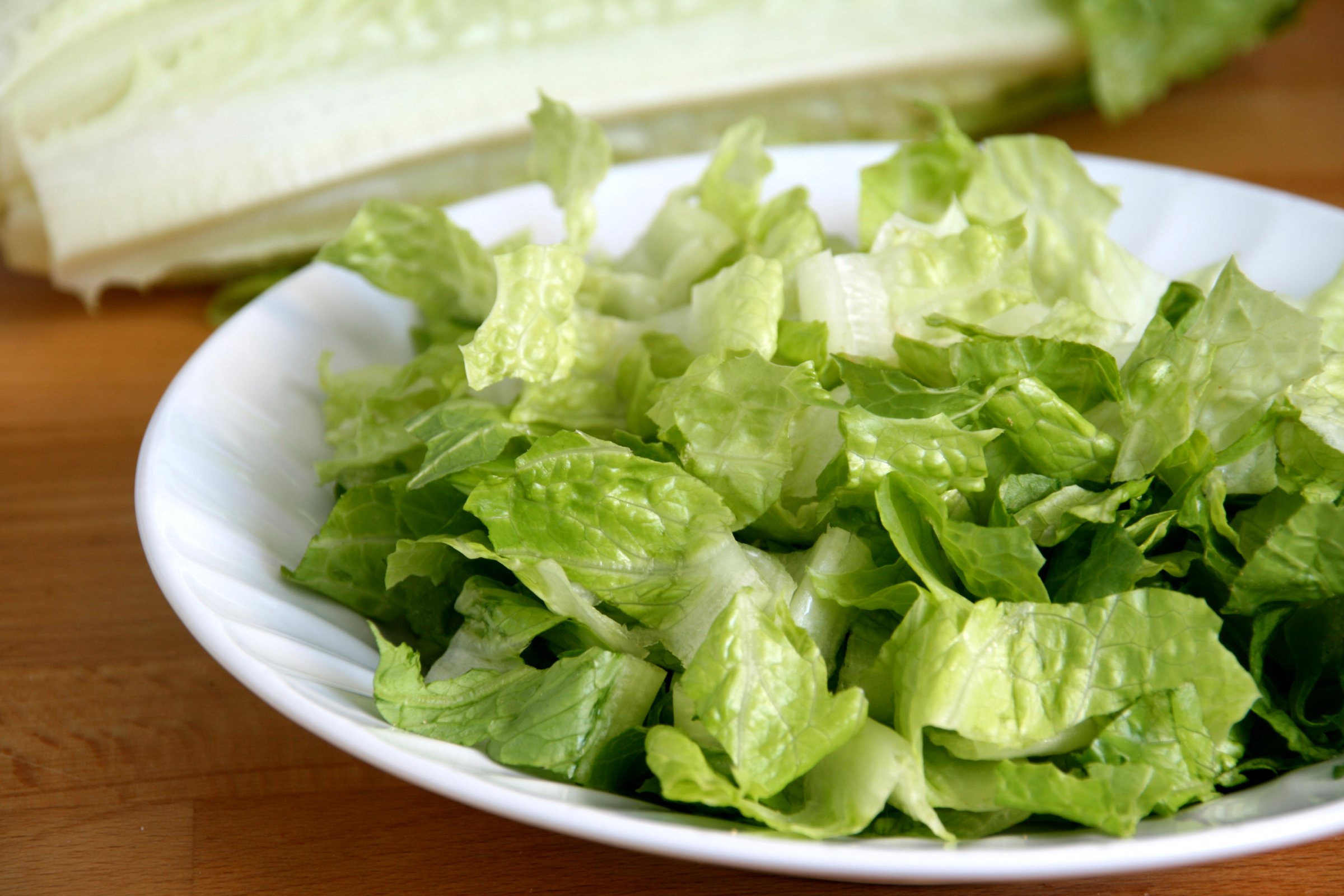
Taylor Fitzgerald thought she was doing a good thing.
Her 6-year-old son was hungry, so she picked up a salad and a pizza from Papa Murphy’s, a take-and-bake pizza shop in her home of Rocklin, Calif. While the pizza cooked, she gave her son the salad to snack on. “As a mom, you find it a great success when your 6-year-old is eating a salad,” Fitzgerald says. “You think it’s a good thing that you encourage.”
But a few days later, on Apr. 12, Fitzgerald’s son began to develop bloody diarrhea, a fever and severe body cramps. He was in such “excruciating, agonizing, screaming pain” that Fitzgerald, 27, eventually took him to the emergency room. On Apr. 14, he was admitted to Sacramento’s Sutter Medical Center, where he was later diagnosed with a type of kidney failure called hemolytic uremic syndrome; eventually, he tested positive for E. coli infection. All told, Fitzgerald’s son stayed in the hospital for 16 days.
“This has been really traumatizing for all of us,” Fitzgerald says. “Who thought eating a salad could result in your kid going into kidney failure?”
Across the country, 149 people have been sickened by an E. coli outbreak tied to romaine lettuce, according to the Centers for Disease Control and Prevention’s (CDC) latest tally. (One person, also in California, has died.) And with a lawsuit filed against Papa Murphy’s in Eastern California district court, Fitzgerald is trying to make sure that number doesn’t get any higher.
“I’m doing it because I don’t want another family to go through it,” she says, adding that she was unaware of the E. coli risk when she purchased the salad and would not have bought it had she known. “I’m doing it because I want to have a little bit of justice for [my son], for what he’s gone through, for the hospital bills, for the trauma, for the long road of recovery that we have still ahead of us — for all those reasons.”
Papa Murphy’s declined to comment on pending legal matters, but said in a statement that, “The health and safety of our customers is our highest priority and we strive to take every precaution to ensure our products meet strict safety and quality standards. Immediately upon hearing the announcement by the CDC on April 13th, and out of an abundance of caution, we directed our system to remove product from our stores and inventory.”
William Marler, a Seattle-based attorney who specializes in food safety, is representing Fitzgerald and her son, as well as 86 other people who have been sickened in the current outbreak. He has six cases open at the moment, against establishments in New Jersey, Pennsylvania, Georgia, Arizona and California, including Panera Bread and Red Lobster. The goal, he says, is to work backward by suing restaurants that have sold tainted products, in hopes of learning who supplied the lettuce to these eateries. Marler says this strategy has brought him to Freshway, a supplier serving the Midwest and East Coast, and ideally will lead him to the as-yet-unidentified farm or farms in Yuma, Ariz., that are responsible for the outbreak.
A spokesperson for Red Lobster said the company cannot discuss open legal matters, but said, “The health and safety of our guests is important to us, which is why we take food safety very seriously.” A representative for Panera also said the company does not comment on lawsuits. In an earlier statement, however, Panera CEO Blaine Hurst said the company stopped sourcing romaine from Yuma shortly after the CDC issued an advisory on April 13, and is now using lettuce from California.
Freshway did not immediately respond to a request for comment.
“I’m the Mueller of the E. coli outbreak,” Marler says. “It’s a process not dissimilar to a prosecuting attorney working their way toward the Oval Office.”
Right now, the only named defendant in Fitzgerald’s case is Papa Murphy’s; Marler says the franchise owner and romaine supplier will be added to the complaint if and when they are identified.
Fitzgerald — who has taken time off from her job as a flight attendant to care for and home-school her son while he recovers — says her chief concern is getting a warning out to other families and parents, and making sure her son is in good health. Though he’s back at home, she says his road to recovery could continue for months. Next week, for example, he’s scheduled to undergo a brain scan to ensure he’ll have no lasting cognitive damage from the ordeal.
“To keep a product out there that contains this and have other families go through what we’ve gone through is just something I wouldn’t wish on my worst enemy,” she says. “I just want other families to be careful, and still not risk it. It’s not worth it.”
More Must-Reads from TIME
- Why Trump’s Message Worked on Latino Men
- What Trump’s Win Could Mean for Housing
- The 100 Must-Read Books of 2024
- Sleep Doctors Share the 1 Tip That’s Changed Their Lives
- Column: Let’s Bring Back Romance
- What It’s Like to Have Long COVID As a Kid
- FX’s Say Nothing Is the Must-Watch Political Thriller of 2024
- Merle Bombardieri Is Helping People Make the Baby Decision
Write to Jamie Ducharme at jamie.ducharme@time.com